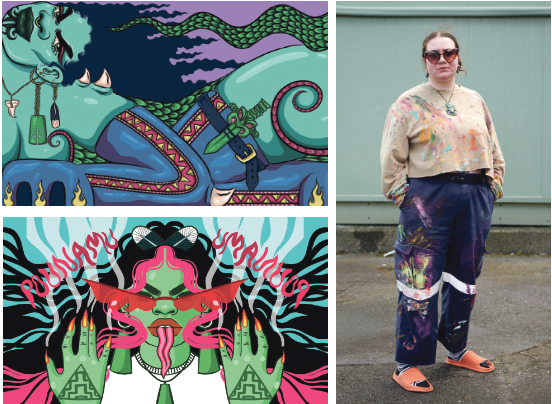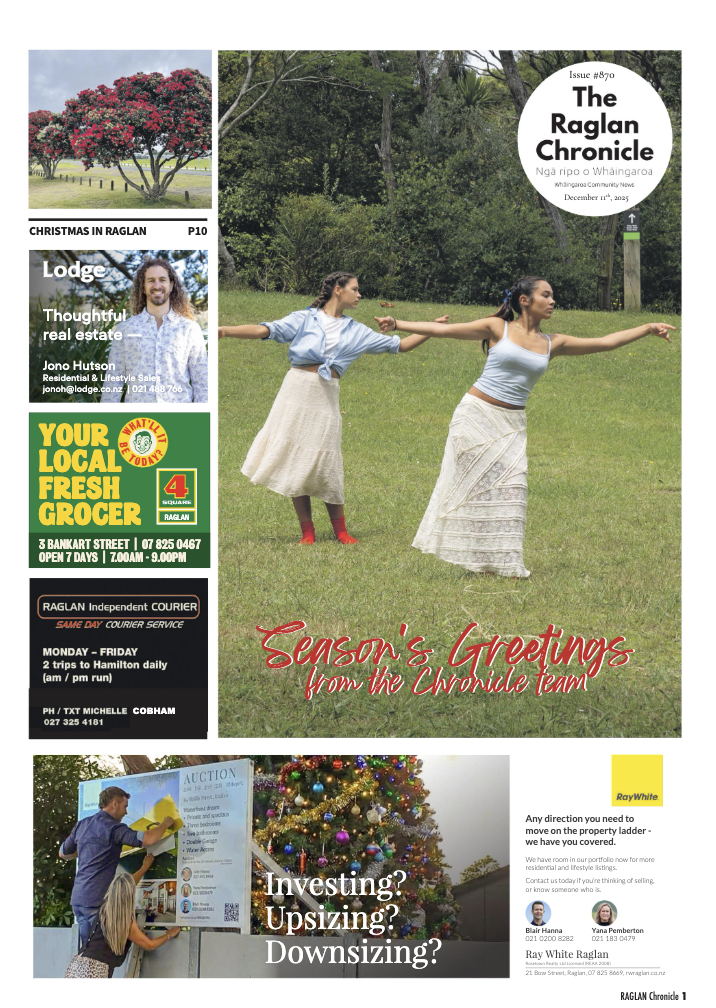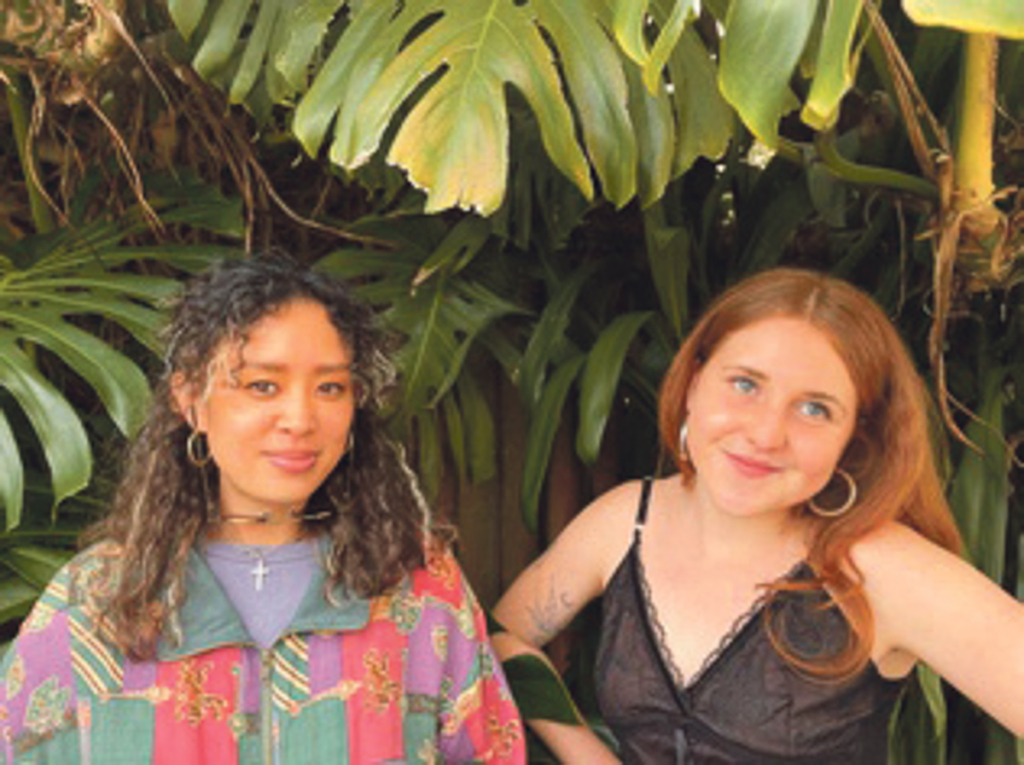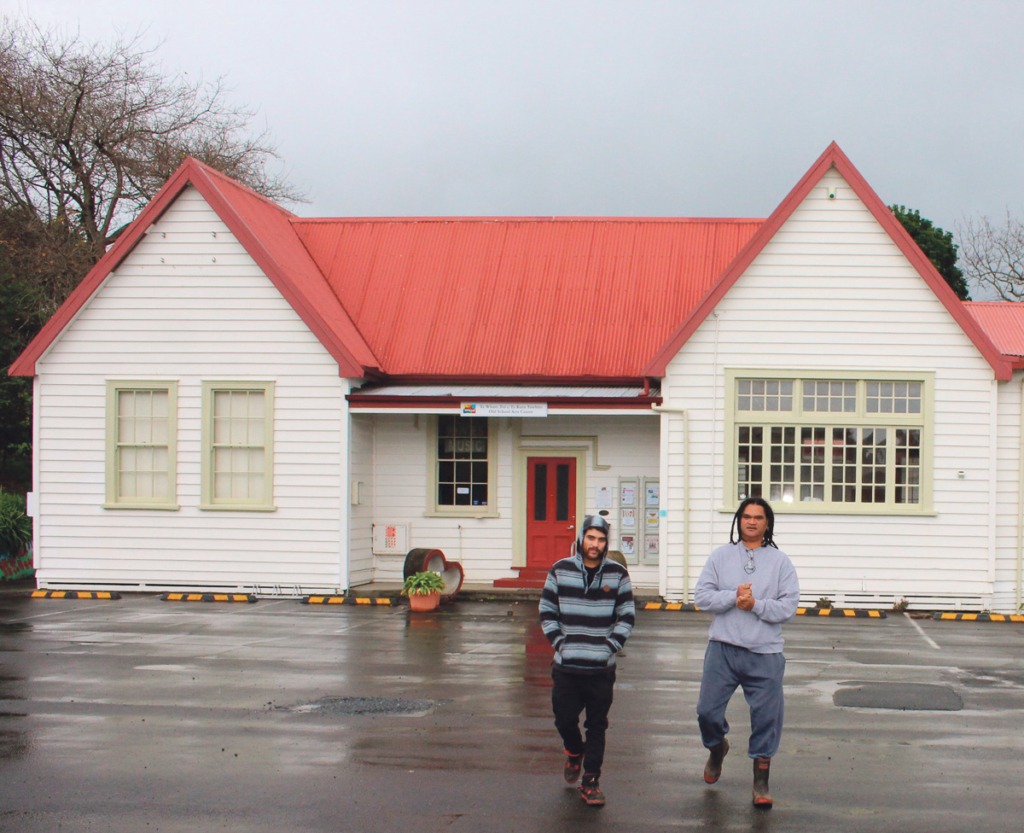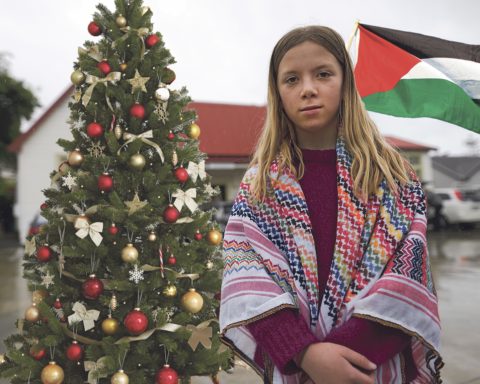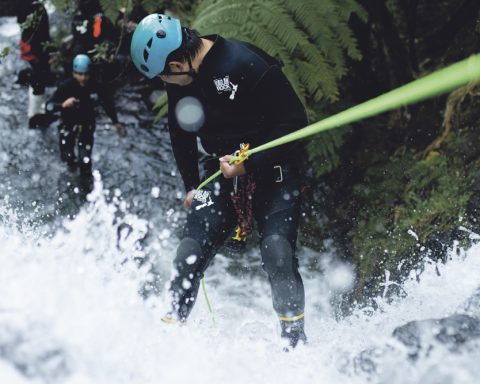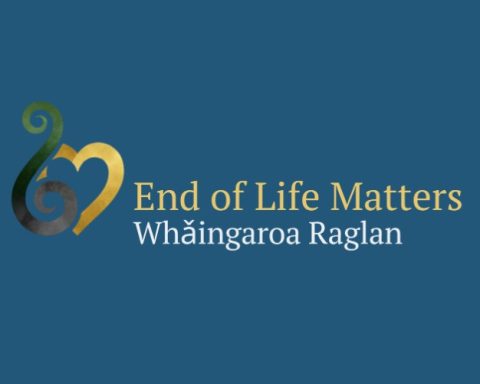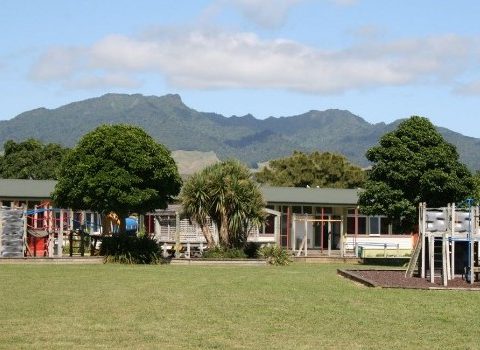Pounamu Wharekawa (Ngai te Rangi, they/themme/ia) is a relative newcomer on the art scene but they are already making a big impact.
A self-described “indigenous baddie, fine artist, illustrator and muralist”, Pounamu makes art that speaks about the “intersections of identity through the lens of a queer, small town turned urban Māori living their best boring life in the big smoke of Kirikiriroa”.
Pounamu is now ‘living their best boring life’ back in Whāingaroa at the family homestead on Norrie Street.
The family actually moved into the house the night Pounamu was born over 25 years ago and the house is filled with extended whaanau.
Pounamu’s grandma Peggotty Wharekawa was a teacher at Raglan Area School for many years
“The core of my immediate family lives here and my grandma is the matriarch so it’s nice to be able to spend more time with her.”
Creativity runs in the family, mum Claudia Wharekawa is also a talented artist.
“I was definitely encouraged to do art but it was never really seen as a career because she hasn’t made it her career,” Pounamu says.
Using vibrant technicolour to depict contemporary versions of Māori pūrākau (legends), atua (deity) and ancestors, Pounamu reimagines them as if they were a cast of rich and diverse characters dancing at the club in downtown Aotearoa.
“I feel like you can’t avoid your own identity. As a takatāpui Māori, feminine person there’s no way to avoid any of my lefty views coming into to my art because I value my own existence and that of my peers. So, all of my work is a love letter to them and the people I know, and I feel like that in itself is political. These are trans people, these are square people, these are beautiful mana wāhine who are under appreciated in our society.”
Participating in the Boon Street Art Festival in 2021, their mural of a feminine atua on Liverpool Street was created in their last year of Wintec media arts studies.
“The mural depicts a rangatahi and a tīpuna hongi-ing, kind of a play on the saying my ancestors walk with me – so the idea that no matter how alone you feel, your ancestors are always there with you.”
Not their first mural though, it was a mural Pounamu had painted while at Wintec that caught the eye of Boon Street Festival director Craig McClure.
“He saw my first ever mural and he just hit me up to be in the mural festival, so that was pretty cool.”
Making these sorts of connections is something Pounamu has actively fostered in the pursuit of being a fulltime artist.
“I worked really hard, going out to events and making friends with people that were in really good positions to offer me work or help nurture me.”
The early success, coupled with past experiences of undervaluing their work, has given Pounamu the confidence to negotiate with clients’ booking commission work.
Being able to price accordingly is something Pounamu has put a bit of thought into. After all there’s a lot of time that goes into a painting regardless of its size.
“I like to have a price range in mind that I will never go under. But I’ll also ask the client what their budget is and then I can offer a range of different of things that I can do for them.”
Before Wintec, Pounamu had tried their luck at making a living as an artist but they didn’t have the business sense at the time to value their work.
“Basically, I was trying to sell original illustrations for 30 bucks, which is the same as a print price. Obviously, I wasn’t doing very well. Like, I just spent 10 hours on this painting and I got $20 for it.”
Pounamu credits Wintec for helping build their business acumen and professionalism.
“For me, the thing that was most helpful about Wintec wasn’t the technical stuff it was building relationships with my classmates and artists. And being able to be better at scheduling, because if you’re having to do assignments, then you get used to knowing what a deadline is.”
Being able to make a living from art as an emerging artist is something they don’t take lightly.
“I feel really lucky to be working fulltime as an artist. I was not expecting it to be this close after graduating. But I was lucky enough to have built up quite a decent client base while I was still studying.”
Much of that study time was through the COVID lockdowns and meant time to get stuck in assignments, as well as contemplate how to get work out in front of the public.
“I think COVID was a really good way for people to stop concentrating so much on exhibitions. Because that’s one of the big things as an artist that you’re meant to do. I think people were experimenting more with other ways to get their art out into the world.”
For Pounamu, it was an ideal time to build an Instagram following and a website with the hope of selling art.
“It felt like heaps people were getting art over COVID because we were spending so much time in our houses and so buying art was a way to tolerate being stuck in our homes,” they laugh.
As well as paintings and large-scale murals, Pounamu offers a range of prints and t-shirts through their website.
“When I was studying and we had to figure out what we value in art and creativity. One of the big ones for me was trying to think of different ways that I could make my work more accessible to people like me, or students or someone on a benefit.”
By Janine Jackson
